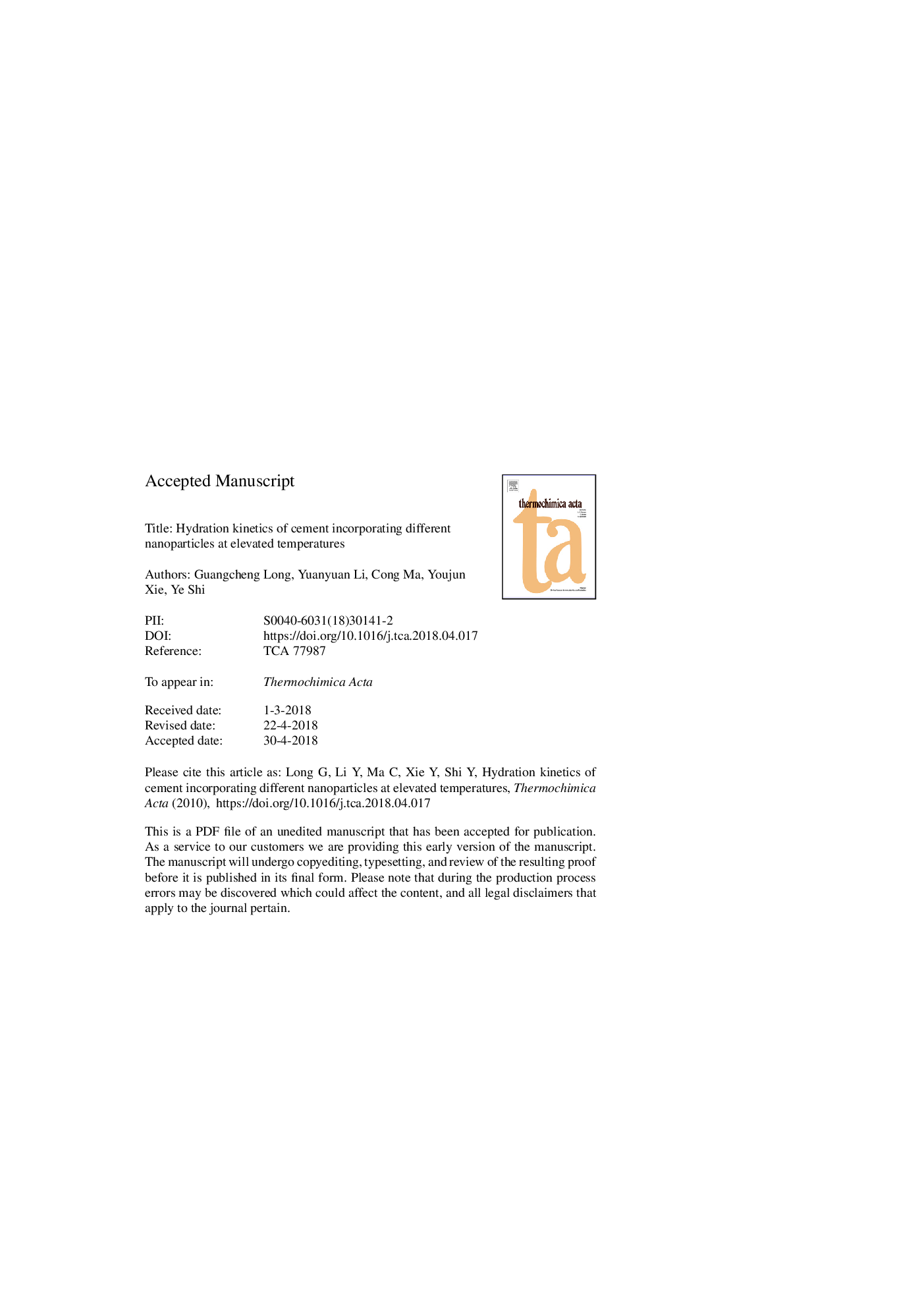| Article ID | Journal | Published Year | Pages | File Type |
|---|---|---|---|---|
| 7061947 | Thermochimica Acta | 2018 | 35 Pages |
Abstract
The nanometer materials and technology are becoming new ways for cementitious composite innovation due to the significant improvement of microstructure and mechanical performance of cement-based materials. In this study, the isothermal calorimetry was employed to measure the heat release rate and total heat release of multi-scale cement system incorporated with different nanoparticles at elevated temperatures. The nucleation and growth processes of hydration products were simulated through a kinetics model. It is discovered that the effects of nanoparticles on cement hydration depend on itself chemical reactivity and physical properties as well as ambient temperature. Both nano-SiO2 and nano-C-S-H can obviously shorten the induction period of cement hydration and have acceleration effects obviously. Addition of 1% nano-CaCO3 seems to have no obvious effect on cement hydration process at elevated temperatures. The acceleration effects of nano-particles mainly refer to the improvement of the nucleation rate of hydrates. Generally, the effect of nanoparticles on nucleation process is more significant than that on growth process. Nano-SiO2 and nano-CaCO3 have slight influence on the growth rate, but the nano-C-S-H can increase the growth rates to some extent at different temperatures.
Related Topics
Physical Sciences and Engineering
Chemical Engineering
Fluid Flow and Transfer Processes
Authors
Guangcheng Long, Yuanyuan Li, Cong Ma, Youjun Xie, Ye Shi,
